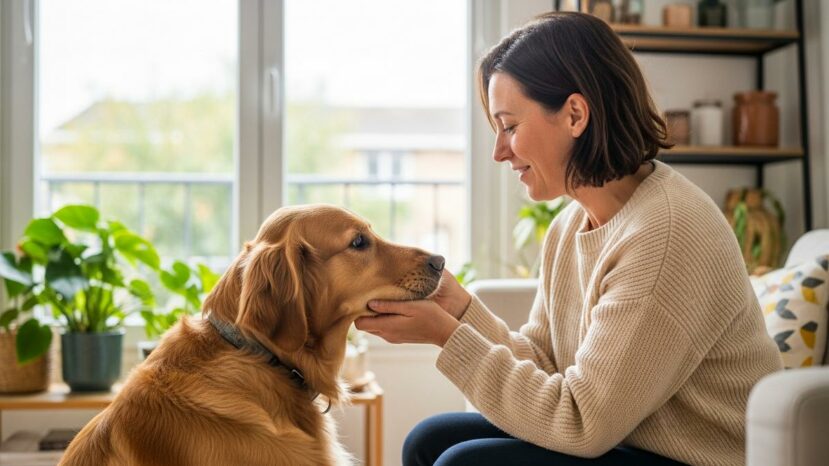Pets: science confirms they protect mental health and prolong life

Long seen as a simple pleasure, pets are now emerging as a real health support. Recent studies link their presence to improved morale and more stable longevity. In this way, the home becomes a place of discreet care, supported by a daily relationship.
Mental health: tangible day-to-day support
Regular contact soothes the nervous system. What’s more, stroking a coat calms the breath and the mind. We observe a
Ritual counts as much as affection. So feeding, going out or playing structure the day. This framework limits rumination and encourages attention to the present. Pets transform a habit into an anchor of well-being.
Presence also creates a social bond. What’s more, a walk often opens up a conversation with the neighbors. Exchanges follow, and feelings of isolation recede. Pets reinforce everyone’s place in the community.
“A simple relationship, repeated day after day, can support mental balance and give momentum.”
What recent research says
A number of scientific studies have linked animal companionship to more favorable health indicators. However, correlation does not mean single cause. Active profiles often already benefit from a structured lifestyle. Pets seem to act as a catalyst for good routines.
Effects vary according to age and context. Seniors gain in mobility and cognitive stimulation. Children learn empathy and regular care. Pets do not replace treatment, but support a holistic approach.
- Set fixed times for care and walks
- Plan short, daily play times
- Set up a planned veterinary follow-up
- Varying outings and sensory stimuli
- Strengthening the bond through positive education
Concrete benefits in everyday life
In the morning, a five-minute ritual is sometimes enough. A look, a touch, can boost motivation. The brain finds a clear starting signal for the day. Pets also help to set things in motion.
I’m ready to extract the product references.
Please provide me with the text or HTML of the article.
When teleworking, a playful break breaks the tension cycles. The result is a smoother return to the task in hand. Mood rises, and concentration follows. Pets help to establish a healthy rhythm between effort and recovery.
Responsible adoption and living environment
Adoption shouldn’t be a matter of emotional urgency. On the contrary, a well-prepared project creates the conditions for a stable duo. Time, patience and a
The choice of species depends on lifestyle. For example, a cat is best suited to small, quiet areas. An active dog requires outings and consistent training. Pets benefit from a secure, predictable environment.
Practical tips for a balanced duo
Schedule regular veterinary visits and parasite prevention. In addition, keep an up-to-date health record. Diet should be adapted to age and activity. Pets benefit from simple but constant monitoring.
Stimulate the mind with search and occupy games. A digging mat or food puzzle channels energy. A cat tree encourages vertical movement and curiosity. Pets respond well to reward and regularity.
Learn to read comfort and warning signals. Also, respect rest periods and refuge zones. Adjust expectations, then progress in small steps. Pets thrive when the relationship remains clear and gentle.





No comments
Post a comment
Always participate in accordance with the law and with respect for others.